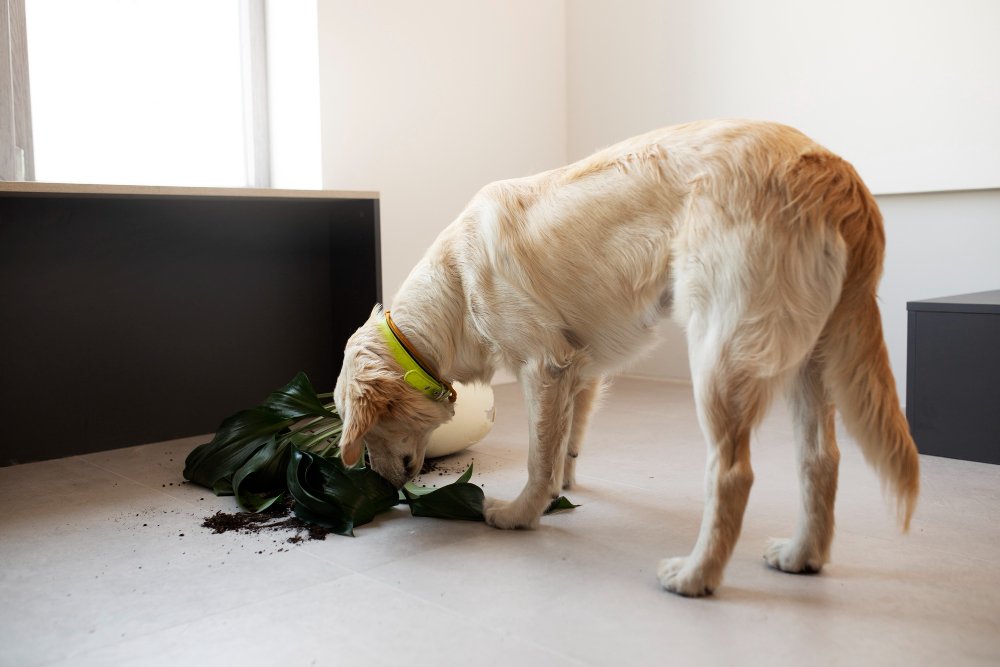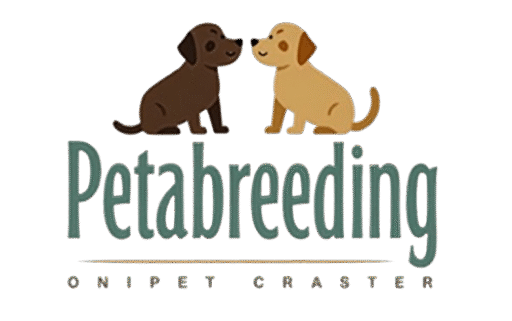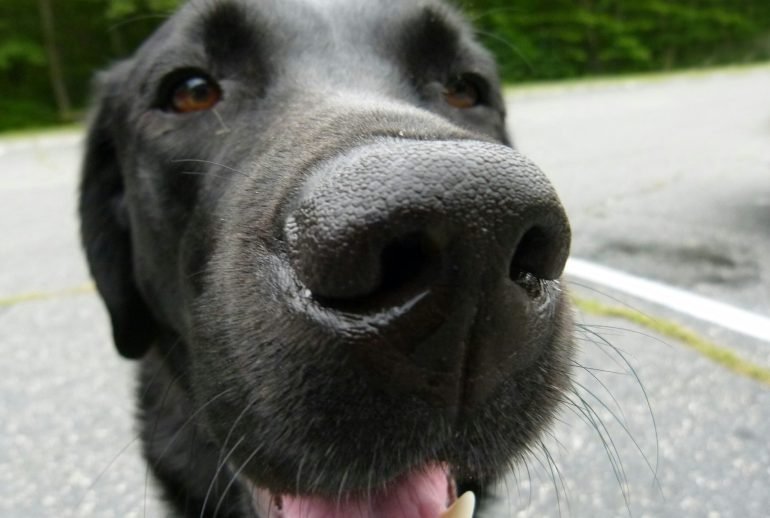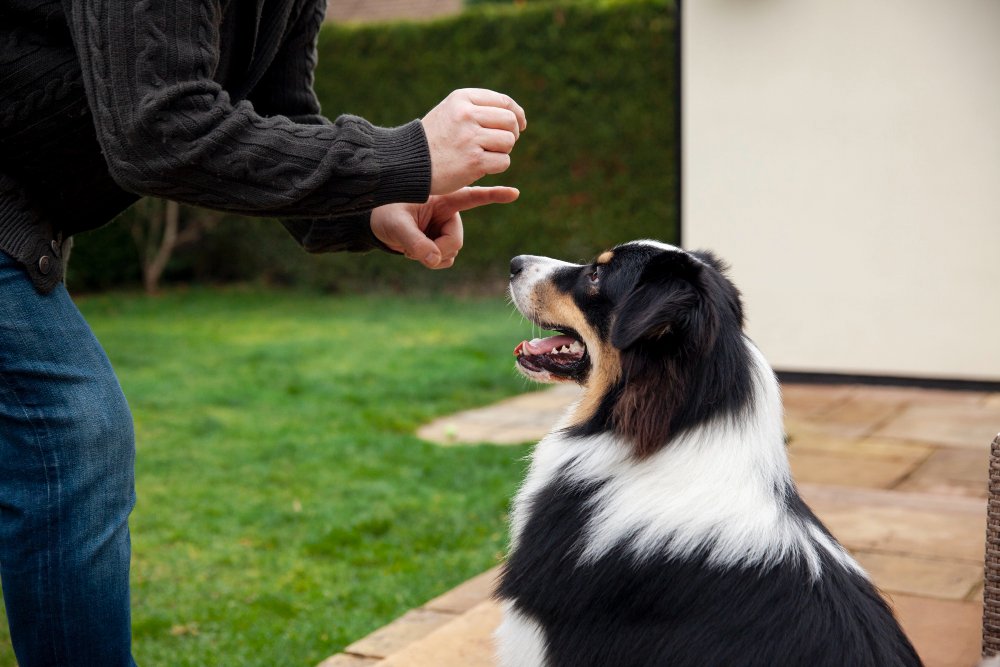It’s one of the most baffling and unpleasant moments a dog owner can experience. You’re cuddling with your furry best friend, and suddenly you’re hit with an overwhelmingly pungent, fishy smell. You check the kitchen for old tuna cans. You check the trash. Finally, you realize the odor is coming from the dog.
Your first thought is a confused, slightly panicked search: “why does my dog smell like fish?”
If this is happening to you, take a deep breath. You’re not alone, and it’s one of the most common (and fixable) issues vets and groomers hear about. That “eau de fish” is a very specific calling card. While it could be a few things, one culprit is responsible for this problem more than 90% of the time: your dog’s anal glands.
This guide will break down the mystery of the fishy smell. We’ll dive deep into the number one cause—anal gland issues—and explore the other, less common possibilities. Most importantly, we’ll tell you exactly what to do to get rid of the smell and make your dog comfortable again.
Part 1: The #1 Culprit: Your Dog’s Anal Glands
Let’s get right to it. That unmistakable fishy odor is the signature scent of anal sac fluid.
What Are Anal Glands (and Why Do They Exist)?
Every dog, male or female, has two small sacs located just inside their anus, at roughly the 4 o’clock and 8 o’clock positions. These are the anal glands, or anal sacs.
Their primary function is scent marking. Think of them as your dog’s unique “scent fingerprint.” They produce a thin, oily, and incredibly pungent secretion. In a healthy dog, every time they have a firm, healthy bowel movement, the pressure of the stool passing expresses a tiny drop of this fluid onto the feces. It’s a way of saying, “Spot was here” to other dogs.
When everything is working normally, you should never smell this fluid. It’s designed to be expressed in tiny, unnoticeable amounts, only during defecation.
When Good Glands Go Bad: The Source of the Smell
The question “why does my dog smell like fish” arises when this system breaks down. The fishy smell you’re noticing means the fluid is being released at the wrong time or, more likely, isn’t being released at all and is becoming a problem.
Here are the most common anal gland issues:
1. Impaction
This is the most frequent problem. Impaction occurs when the glands don’t empty properly on their own. The fluid inside continues to build up, becoming thick, pasty, and unable to pass through the tiny duct. This pressure is uncomfortable and itchy for your dog.
Common Causes of Impaction:
- Soft Stools: This is the biggest trigger. If your dog’s stool is consistently soft or loose (due to diet, allergies, or an upset stomach), it doesn’t provide the necessary pressure to express the glands.
- Obesity: Overweight dogs can have extra fatty tissue that interferes with natural expression.
- Allergies: Both food and environmental allergies can cause widespread inflammation, including the anal glands, leading to impaction.
- Genetics: Some dogs, especially small breeds like Chihuahuas, Toy Poodles, and Shih Tzus, are simply born with poorly positioned or narrow ducts, predisposing them to issues.
2. Leakage
Sometimes, the glands become so full that they simply “leak.” This can happen when your dog is relaxed, sleeping on your couch, or gets suddenly scared or excited. This sudden release of fluid is what causes that “Where is that fish smell coming from?!” moment.
3. Infection and Abscess
This is the most serious and painful stage. When impacted glands are left untreated, the trapped fluid can become a breeding ground for bacteria, leading to a painful infection.
This can progress to an anal gland abscess, where the sac fills with pus and becomes a large, red, swollen lump. This is a medical emergency. The pressure will eventually cause the abscess to rupture through the skin to relieve the pressure, a process that is extremely painful for your dog and requires immediate veterinary care.
Source: The American Kennel Club (AKC) (External Link) provides excellent information on identifying and managing these conditions.
Part 2: What to Do About Anal Gland Issues
Your dog can’t tell you, “Hey, my butt is itchy and smells like fish.” Instead, they show you.
“The Scoot”: Your Dog’s Cry for Help
That infamous “scoot”—where your dog drags their rear end across your floor—is not a “funny” behavior. It’s a giant, flashing sign of anal gland discomfort.
Other signs include:
- Excessive licking or biting at their tail, rear, or flanks.
- Suddenly sitting down or turning to look at their rear.
- A strong, persistent fishy odor.
- Whining or yelping when trying to poop.
- Visible redness or swelling around the anus (this is an emergency).
Solving the Problem: Expression and Prevention
If you notice the smell or the scooting, it’s time to act.
1. Professional Expression
The first step is to get those impacted glands emptied. This is a job for a professional—either your veterinarian or a trained groomer.
- External vs. Internal: Many groomers perform external expression (squeezing from the outside). This is often not enough for impacted glands. A veterinarian will perform an internal expression, which is safer and far more effective at emptying the entire sac.
- Don’t Do It Yourself (Unless Trained): While some owners learn to do it, improper technique can be painful and cause inflammation, making the problem worse.

2. When to See the Vet
A simple impaction can often be handled by a groomer. However, you must see a veterinarian if:
- Your dog seems to be in pain.
- You see any blood in the fluid or on their fur.
- You see redness or a visible swelling (abscess).
- The problem comes back immediately after expression.
Your vet will express the glands and may need to infuse them with an antibiotic if an infection is present.
3. Long-Term Prevention (The Real Solution)
You don’t want to be at the vet every two weeks for this. The key is prevention, which almost always comes down to one thing: stool quality.
- Diet & Fiber: This is your most powerful tool. Your dog must have consistently firm, solid stools.
- High-Quality Food: Ensure you’re feeding a high-quality dog food that agrees with your dog.
- Add Fiber: This is the magic bullet for many dogs. Fiber bulks up the stool. Talk to your vet about adding:
- A tablespoon of plain canned pumpkin (100% pumpkin, not pie filling).
- A sprinkle of psyllium husk powder.
- A specific fiber supplement for anal glands (like Glandex).
- Manage Weight: If your dog is overweight, work with your vet on a diet and exercise plan. Losing even a few pounds can make a huge difference.
- Manage Allergies: If you suspect allergies, talk to your vet. This may involve a food trial (hypoallergenic diet) or medication for environmental allergies.
- Stay Hydrated: Plenty of fresh water is essential for digestive health and firm stools.
Part 3: What If It’s NOT Anal Glands?
While anal glands are the prime suspect, a few other issues can sometimes be described as “fishy.” If you’ve had the glands checked and the smell persists, it’s time to investigate these.
1. Oral Hygiene: The “Fishy Breath” Problem
If the smell is coming from your dog’s mouth, not their rear, the problem is dental.
- Periodontal Disease: A buildup of plaque and tartar can lead to a severe bacterial infection in the gums. This infection, along with decaying food particles trapped in the teeth, can produce a foul, sometimes fishy, odor.
- Infections/Abscesses: A cracked tooth or an abscess can also be a source of a terrible smell.
- Action: This requires a veterinary dental cleaning.
- Source: The [American Veterinary Dental College (AVDC)](https of a fishy-smelling discharge. This is most common in unspayed female dogs or those with anatomical abnormalities.
- Action: This requires a vet visit to diagnose the cause of the inflammation.
A Step-by-Step Action Plan
Your dog smells like fish. What do you do right now?
- Pinpoint the Source: Get close (as unpleasant as it is) and figure out where the smell is strongest. Is it their rear end? Their mouth? Their ears? Their skin in general?
- Look for Other Clues:
- Rear End: Are they scooting, licking, or biting?
- Mouth: Are their gums red? Teeth covered in tartar? Are they drooling?
- Urinary: Are they having accidents or straining to pee?
- If the Smell is from the Rear (Anal Glands):
- Schedule an appointment with your groomer or vet for an anal gland expression.
- Do not wait. The longer you wait, the more likely it is to become infected and painful.
- If the Smell is from the Mouth:
- Schedule a dental check-up with your vet. In the meantime, you can try a dog-safe dental wipe or water additive.
- If the Smell is from the Skin/Ears:
- Check for redness, oily fur, or waxy debris in the ears. Schedule a vet visit to check for a yeast or bacterial infection.
- If the Smell is in the Urine:
- Call your vet immediately to schedule a urinalysis.
Conclusion: Your Dog Is Asking for Help
That alarming moment you ask, “why does my dog smell like fish?” is almost always the first sign of a very common, very treatable problem: their anal glands are full, uncomfortable, and need help.
While it’s a gross topic, it’s a simple part of dog ownership. Don’t ignore the smell or the scooting. It’s your dog’s only way of telling you they’re in discomfort. By working with your vet on a long-term plan involving diet, fiber, and weight management, you can often solve the problem for good and get back to fish-free cuddles.



